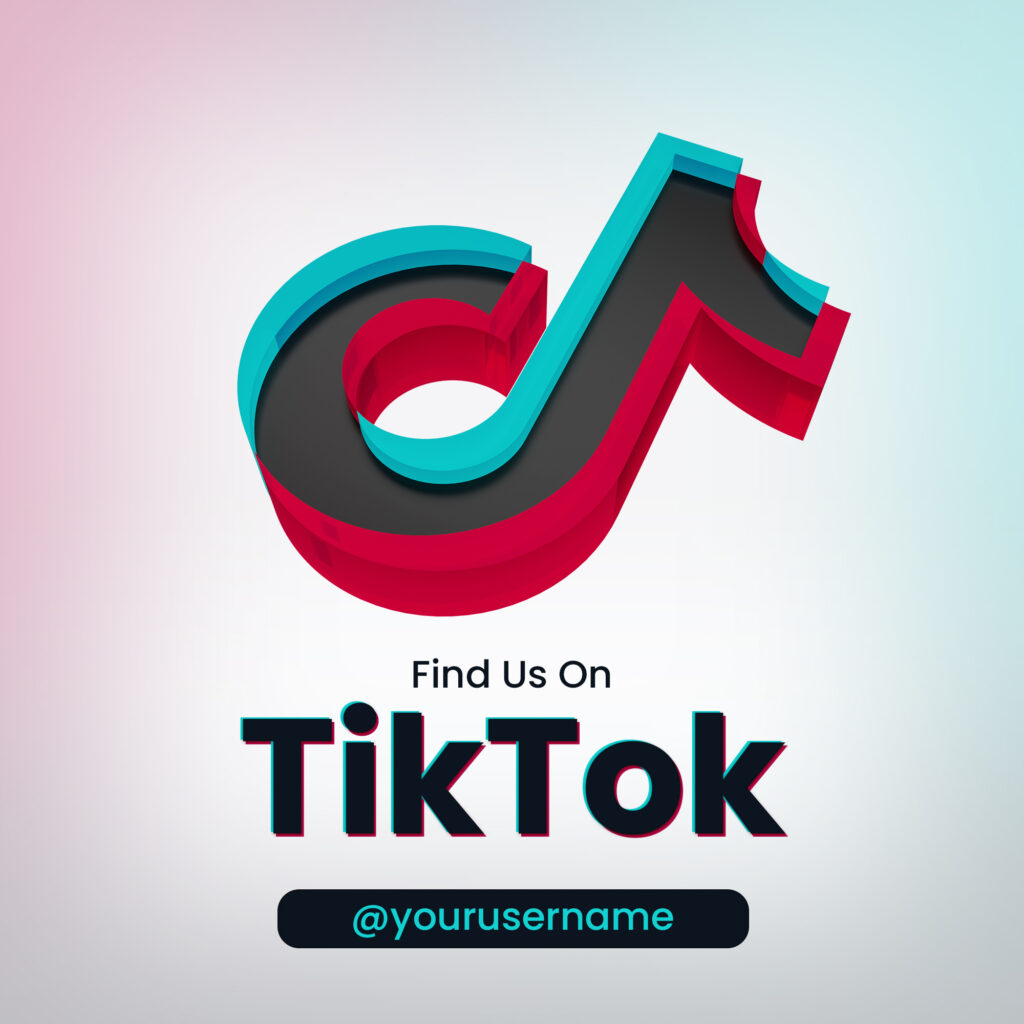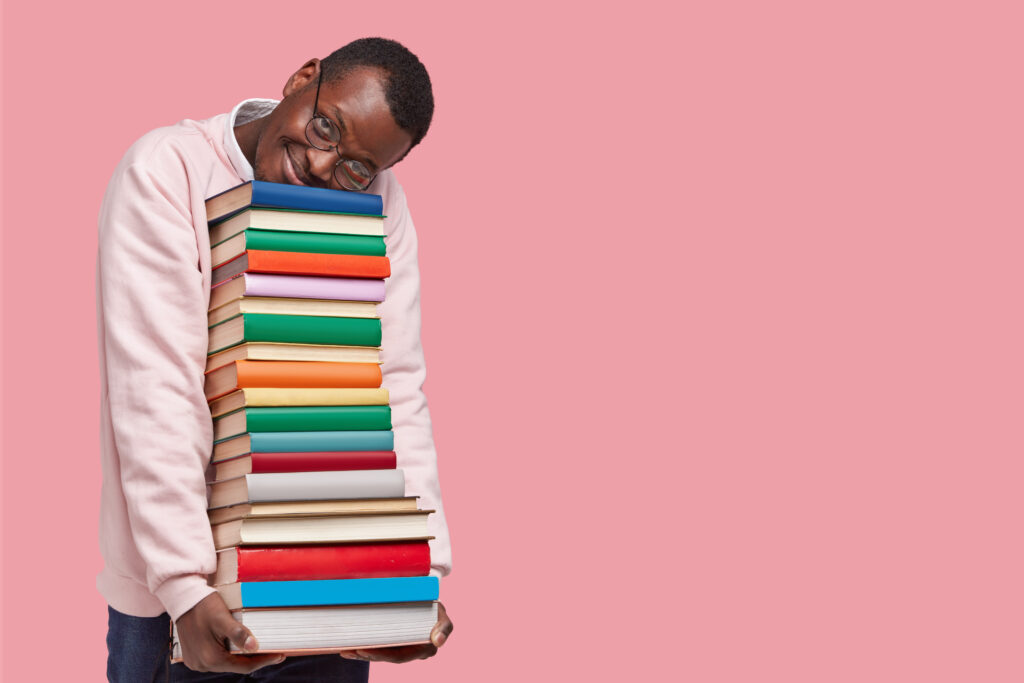SHOULD YOUR CHILD BE EXPOSED TO TIKTOK?
E Gouws Head of Intermediate Phase

What is TikTok? This is an app that can be downloaded from Google play. It allows users to create and share short videos of up to 10 minutes on any topic. It is mainly cell phone based. TikTok has been installed 3 billion times and there are 1 billion active users. In the Chinese market, it is one of the most popular apps in the country and it is called Douyin. More than 700 million people use the app daily.
The most popular videos that are uploaded are entertainment and dance videos. Filters, stickers, voiceovers, sound effects, songs and background music can be added to videos. Creating and sharing videos is easy and quick. You can record anything from your life and post it instantly.
Why is it so popular? It is used by celebrities who promote the app. ‘Influential creators’ gain popularity through the platform and they have millions of followers.
What happens when you use TikTok? As soon as the user opens the app, videos start playing one by one. The viewer is lost in a never-ending stream of entertaining and fun videos – sometimes crude and wild videos. People can watch this content for hours.
TikTok challenges One of the hallmarks of the app is its challenges. Children participate in these challenges to gain viewers and likes. For example the hot water challenge – people throw boiling water onto each other; the blackout challenge – people choke themselves until they black out; the devious licks challenge – people are encouraged tosteal or vandalize school property. These videos are sometimes removed but often the trend has quickly gone viral. Following a new TikTok trend is very easy. Users can copy the music used and create their own video of the challenge.
Dangers? TikTok allows users to have contact with anyone in the world. Your child could be showing off their talents to anyone anywhere. Predators can use flattery and compliments to worm their way into your child’s life.
TikTok’s privacy policies leave much to be desired. It says that it collects the “information you provide in the context of composing, sending, or receiving messages.” TikTok can watch what you write in messages to friends, even if it is never sent. The app collects a large amount of personal information from its users – their locations, contacts, and message contents. It could be used as a tool for any government to collect and exploit user data and spread propaganda even though TikTok has maintained that it is neutral and that it stores user data in the US and Singapore, not in China.
Sexually provocative content is very common. Anti-Semitism, racism, and xenophobia are constantly streamed and your child will always see some kind of video on these topics.
More than 60% of TikTok users are Gen Zers which means they are between 11 and 26 years of age. The human brain is only fully developed at the age of 25 years.
Laura Bedrossian, vice president and social strategist, at integrated marketing communications agency Hot Paper Lantern, reminds parents that knowledge is power: “If your kid is on any social media platform, make sure you as a parent or guardian have some understanding of it,” she notes. “Download the app yourself and see what it’s all about so you can answer questions or even ask your child about what they’re seeing on an app. Keep an open and honest discussion about their—and your—digital literacy and footprint.”
(As of August 12, 2021, the app rolled out the following new safety features for teens. Follow the link to find out for yourself.)
Sources https://www.parents.com/kids/safety/internet/is-tiktok-safe-for-kids/
https://japari.co.za/is-tiktok-safe-for-kids-a-comprehensive-guide-for-parents/
https://www.makeuseof.com/is-tiktok-bad/
https://www.allprodad.com/3-dangers-of-tiktok/
FAILED NURTURERS
D van Straten Head of Senior Phase

We all have the inborn inclination to care for those close to us, sometimes referred to as the hen-analogy, where a mother hen gathers her chicks to shield them from a hungry hawk circling above. Although it is very necessary to create a platform for teaching life lessons such as collegiality, accountability and love for others, there is danger in our good intentions to overprotect at times.
Not guilty? Before a too hasty defence, we need to perhaps examine ourselves first:
- Ever tried downplaying failure to ease my child’s disappointment when they did not perform well in a task where they perceived good performance as important?
- Ever covered up procrastination by overly assisting or even doing a homework task that should have been started the week before?
- Ever changed your plans or gone out of your way to run after your child because they have forgotten this or that and is now stressed?
- Ever blamed others for poor communication, a too busy schedule, unrealistic expectations…
Unintentionally our protection results in children who are unable to defend themselves against some of life’s challenges, especially later in life.
We are all aware of the fact that experience equips us: a good employee is often one with several years’ experience; a good sportsman is one who has played with perseverance before; a good leader is one who has learnt to deal with failure.
he wise remind us: Adversity is a severe instructor, set over us by one who knows us better than we do ourselves, as he loves us better too. Edmund Burke
The Bible teaches us: Not only so, but we also glory in our sufferings, because we know that suffering produces perseverance, perseverance, character; and character, hope. Romans 5:3-4
Of course, we must protect, nurture, care and love. But we also need the discernment to know when more is less.
LEARNING NEED NOT STOP
J Sibeko Head of FET Phase

For most learners (and parents) the holidays are a time to relax and forget about school. Unfortunately, many studies have shown that the learning loss for students during these breaks can be detrimental. Studies show even a short 2-3 week break can be a problem.
Just because it is a “break” from school does not mean it must be a “break” from learning. Studies have shown that investing just 2-3 hours per week learning loss over the breaks can be avoided. Here is an idea to try and fill these hours (and remember that more is better):
Reading is one of the best ways to learn. It is not restricted to the classroom. Even reading fiction helps us to see ideas what we otherwise might not know about.
The best part about reading is that it is available to everyone, requires less parental planning and supervision and does not have to cost any money. Reading can also be done during holidays. Local libraries are great places to visit over the breaks, as many of them offer special programs. Even if there is nothing special going on, every child can find something that is interesting at the library. Set a goal for them to finish a book. Discuss with your child what he/she has read and ask questions. With technology, today’s children can also read on an electronic device if they cannot make it to the library. You can even create family or friend “book clubs” to encourage your child to read.
There are many topics and subjects not covered by school. Holidays are the ideal chance to investigate these topics of interest. Find out what your child might want to find out about. And then make a point to explore this during the break.
Sources https://www.nextstepu.com/six-ways-avoid-learning-loss-overbreak.
arthttps://www.acacamps.org/blogs?field_blog_type_value=1
TO ChatGPT OR NOT TO CHAT
A du Preez Academic Head

Newly born ChatGPT has caused uproar and excitement in the world of education. This new (ch)app is intelligent, a fast crawler, but also a disruptor.
As you possibly know, ChatGPT is an artificial intelligent (AI) application used to find swift answers to almost any question. “Almost”, because ChatGPT is still in its developing stage. But it may ultimately even outgrow mankind in intelligence and speed. Getting instant answers, learners may work faster, have the latest information at hand and receive personalised as well as supplemental teaching. What an easy way out of doing homework, research tasks and worksheets – and no learning happens, no skills are developed.
However, ChatGPT information is drawn from a pre-programmed information pool put together by someone, and still needs to be verified when used. (When my sister typed her name into the ChatGPT app, she was surprised to find that she was a journalist and activist in the early 1900s, who had passed away some decades ago!)
Instead of just indulging blindly into the amazing ability of ChatGPT to generate outlines and content for essays, speeches and other tasks, learners will have to develop skills to critically analyse and assess facts. Then only will ChatGPT be of real value.
Do we still need teachers, we might ask? Children will always need the emotional support of a human being. ChatGPT might be a wonderful and useful tool in some contexts, but the necessary empathy for the child when facing a difficult Maths problem, will be missing. Visual and hands-on experiments in the science lab are also best done in real life with a real teacher. A love for our Shepherd is instilled in the child by the example of real-life teachers and parents. Together we prepare our children for life, which ChatGPT cannot do.
We need to continue teaching our children to Chat-with-God when in distress. He is not affected by loadshedding or network problems and can never be contained by ChatGPT.
Sources https://theconversation.com/we-pitted-chatgpt-against-tools-for-detecting-ai-written-text-and-the-results-are-troubling-199774
https://theconversation.com/chatgpt-is-the-push-higher-education-needs-to-rethink-assessment-200314
